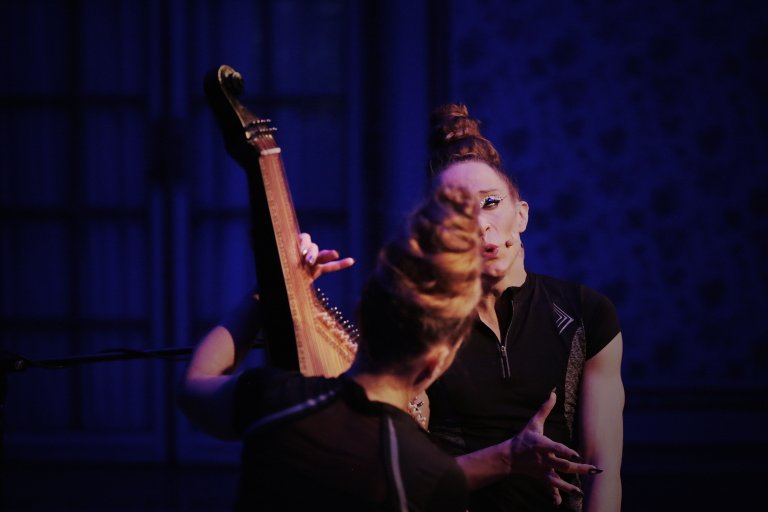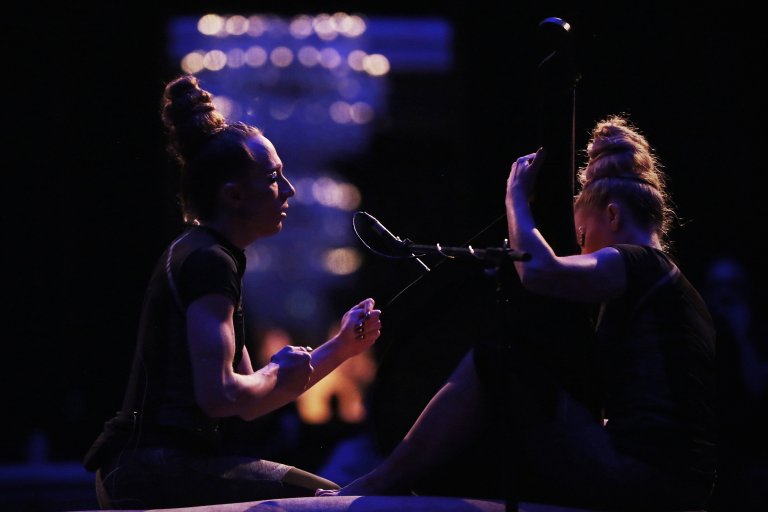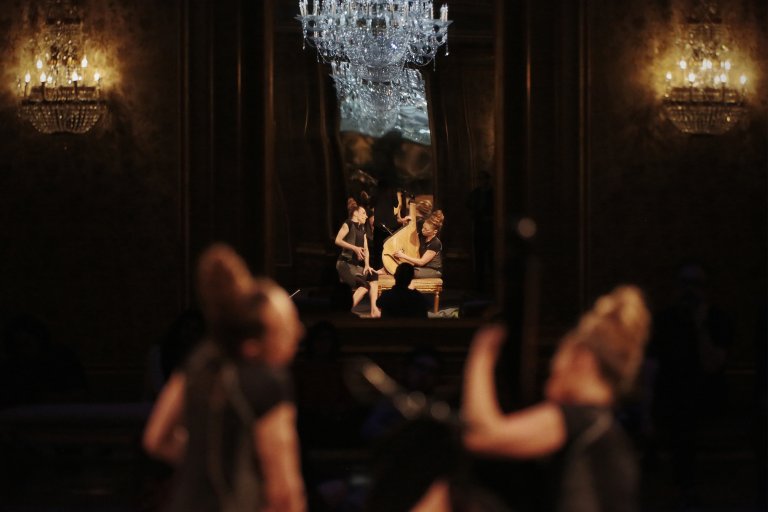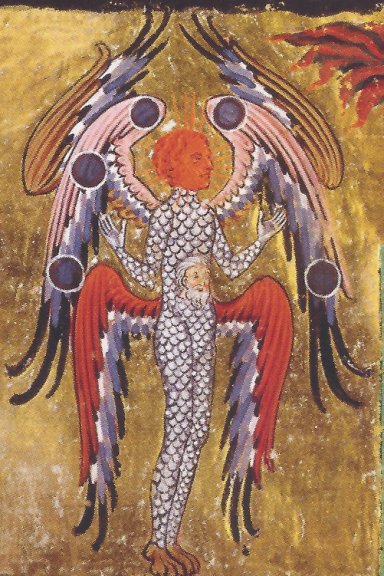27 > 29.03.18
CN D à Pantin
François Chaignaud and Marie-Pierre Brébant share an interest in music as an experience: open and multifarious, steeped in history, in contact with other modes of expression. Running counter to any orthodox interpretation, the starting point of their work can be linked to a utopian future, dreamt at the intersection of the score, a particular person. This person is Hildegard von Bingen, a 12th-century Benedictine nun and mystic who was also a theologian, physician and musician who left behind her a musical oeuvre grouped under the title Symphonia harmoniae caelestium revelationum. Chaignaud and Brébant’s approach consists in reinterpreting its monodies by adapting them for voice and bandura (a traditional Ukrainian instrument) and exploring their musical and spiritual content outside traditional frameworks. In an act of deviation from Catholic hagiography, from ancient music and contemporary choreography, they seek to take full measure of these revelations in order to bring out the liberty of these ardent visions and their carnal relationship with the divine. This unique creation will culminate in the in extenso performance of the sixty-nine antiennes. Their performance lies at the frontier between meditative installation, concert and contemplative choreography. Through the combined resources of body, voice and bandura, they create an image as much as a dance, a sculpture of time as much as a vision of ecstasy.
Since 2004, François Chaignaud, a dancer, singer and historian, has been producing unclassifiable projects that deconstruct the traditional conventions of representation. Using the resources of singing, costume and free dances, he creates disconcerting works, whether as a solo like Dumy Moyi, or accompanied by Cecilia Bengolea (Pâquerette, Sylphides).
A classical musician by training, Marie-Pierre Brébant is an unorthodox keyboard player who tests the Baroque and contemporary repertoires to the full through the body and the stage. Her collaborations with the director Xavier Boussiron since 2004 led to Harpsichord Parade, a reworking of music by the Doors for voice and keyboard, and Bartók’s Microkosmos for keyboard and electric guitar.



